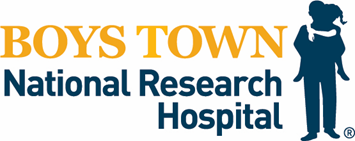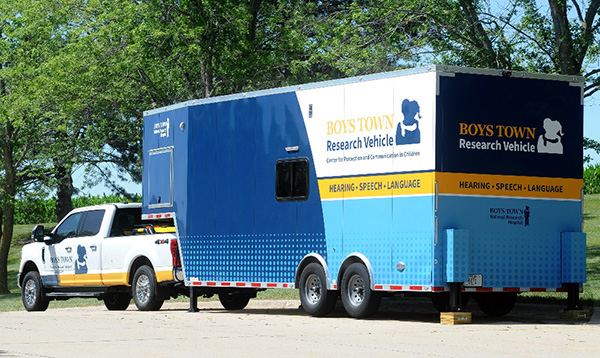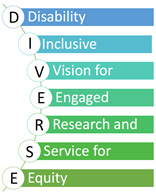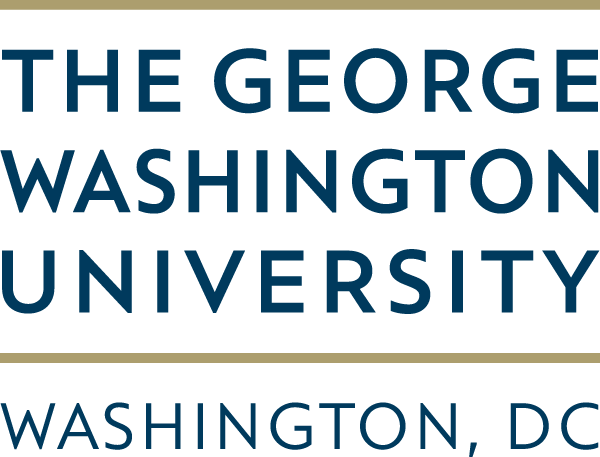Research / Survey Opportunities
Agencies, Organizations, Universities and others are often looking for participation of families and professionals for current research and survey projects. Each opportunity listed below has contact information if you would like to participate. Please contact the specific entity that is sponsoring each research/survey opportunity if you would like more information.
Unless otherwise noted, Hands & Voices does not necessarily promote the goals and objectives of listed research/survey opportunities and participants are advised to clarify any questions/concerns prior to participation with contacts listed for each research/survey opportunity.
For information on submitting your project for inclusion on this page please read our Submittal Request Sheet.
Parent Research / Survey Opportunities
- Descriptions of Studies -
SANGAI (South Asian Network for Guidance, Advocacy, and Inclusion)
 Vanderbilt Doctoral student is conducting a dissertation project focused on supporting South Asian American parents of children with disabilities. The project is a 4-week parent advocacy program called SANGAI (South Asian Network for Guidance, Advocacy, and Inclusion). The program will help parents learn about special education rights, build empowerment, and strengthen their advocacy skills. Recruitment is now open and is looking for parents who might be interested in participating. If you or someone you know might qualify, please follow this link: https://redcap.link/sangai. Feel free to reach out to Bhabika.joshi@vanderbilt.edu with any questions. Thank you for helping spread the word!
Vanderbilt Doctoral student is conducting a dissertation project focused on supporting South Asian American parents of children with disabilities. The project is a 4-week parent advocacy program called SANGAI (South Asian Network for Guidance, Advocacy, and Inclusion). The program will help parents learn about special education rights, build empowerment, and strengthen their advocacy skills. Recruitment is now open and is looking for parents who might be interested in participating. If you or someone you know might qualify, please follow this link: https://redcap.link/sangai. Feel free to reach out to Bhabika.joshi@vanderbilt.edu with any questions. Thank you for helping spread the word!
Paid Study – Test a New Learning App for Parents of DHH Children!
Join Our Research Study to Test a New Parent Learning App
Researchers at Teachers College, Columbia University and the Foundation for Hearing Research invite you to participate in a research study called Talk2MeTM – Effects of a Coach-Assisted Learning App for Parents of DHH Children. You may qualify to take part in this research study if you are the parent or legal guardian of a child who:
- is under the age of 36 months
- has been identified as deaf or hard of hearing (i.e., have mild to profound permanent hearing loss in at least one ear) and
- has been fit with hearing technology (i.e., hearing aid, bone-conduction hearing aid, and/or cochlear implant).
If you choose to participate, you will complete online surveys and have access to a new parent-learning app for 12 weeks. You can also choose to participate in a virtual focus group to share additional feedback.
Participants will be compensated for their time and effort.
To participate or learn more, complete our brief interest form here: (https://tccolumbia.qualtrics.com/jfe/form/SV_9WF5rjNLJL0Cl26).
You can also contact Elaine Smolen, at es3519@tc.columbia.edu or 212-678-8407 (voice/text)
Making Sound Decisions: Understanding the Communication Decisions of Black Hearing Caregivers of Deaf/Hard-of-Hearing Children
Dear Parents,
Hello! My name is Solange Dzeketey, and I am an undergraduate student at the University of Oregon studying Communication Disorders and Sciences. I am conducting a research study on how Black hearing caregivers of deaf or hard-of-hearing children make decisions about how to communicate with their child.
The research study is in the form of an anonymous survey hosted on Qualtrics. You are eligible for this study if you:
- identify as Black or African American,
- are over the age of 18,
- are proficient in English, and
- are a hearing caregiver of a child with hearing loss.
The survey may take up to 30 minutes to complete, and it is linked here: https://oregon.qualtrics.com/jfe/form/SV_4Tk2KnCeiTtQm1w
This research aims to understand what factors influence the communication decisions of Black hearing caregivers and how the most important factors differ between the Black community and their non-Black counterparts. Responses will help inform speech-language pathologists, audiologists, and other professionals working with deaf/hard-of-hearing children on what is most important to their clients in their communication decisions. If you have any questions about the survey or this research, please do not hesitate to reach out to me via email at solange.dzeketey@gmail.com or by phone at (760)566-4611. Thank you for your time!

Join a Paid Study to Train Speech Tech to Recognize Deaf Accents and Diverse Speech Patterns
We are seeking participants to help train speech-based technologies such as voice assistants and smart glasses to better understand and serve the Deaf and Hard of Hearing (DHH) community. By participating, you will play an essential role in improving the accessibility of these technologies, ensuring they are inclusive and accurate for people who use diverse speech patterns or have a Deaf accent.
This study is open to USA-based Deaf or Hard of Hearing (DHH) individuals who use spoken language and have a Deaf accent. The study is nationwide and virtual.
Participant Requirements:
- Must be Deaf or Hard of Hearing (DHH) and identify as having a Deaf accent.
- Must be able to speak in a manner that can be recorded by voice technology (e.g., speak clearly and audibly in English).
- Have a computer with internet access and a functioning built-in or external microphone.
- Have access to a quiet space without background noise.
- Must be a resident of the United States.
- Must be 18+ years old.
Study Structure:
Participants will engage in brief recording sessions to capture their speech. The study aims to gather diverse speech patterns from individuals within the DHH community to enhance speech recognition technologies.
Compensation:
Participants will receive monetary compensation for their time and contribution.
How to Apply:
Please visit https://www.govobo.io/deaf-accent to sign up.
If you have questions, please contact keith@govobo.com with the subject line “Deaf Accent Study Participation.” Include your full name, contact information.
Contact Information:
Email: keith@govobo.com
Website: www.govobo.io/deaf-accent
Identification, education, and referral to relevant clinical study opportunities of individuals with hearing loss
What:
This study aims to build a participant and caregiver community and to provide participants with information and awareness of genetic hearing loss as well as signpost participants to support services and to current and future Regeneron Pharmaceuticals, Inc. sponsored clinical research opportunities.
Why:
Approximately 1.7 children in every 1,000 babies are born with hearing loss. More than half or as many as 80% of these babies are born with hearing loss due to genetic variants. Regeneron Pharmaceuticals, Inc. has a clinical development program for the treatment and understanding of genetic hearing loss, particularly at birth.
Who:
Participants: Adults and families/caregivers of children who are deaf or hard of hearing and professionals and advocates in the field of hearing loss
Sponsor: Regeneron Pharmaceuticals, Inc.
Where: United States (US) and United Kingdom (UK)
When: This study is ongoing and is currently enrolling participants.
How: To learn more and/or register, go to: https://www.learngenetichearingloss.com?utm_source=hv_org&utm_medium=website&utm_campaign=genetic-hearing-loss-trials.
The Impact of Auditory Access on the Development of Speech Perception

The Speech Perception Over Time (SPOT) lab at the University of Colorado Anschutz Medical Campus is conducting an infant developmental study.
The goal of our research is to improve services for children who are at risk for language learning (i.e., hearing loss, reading difficulties). We do this by measuring how infants tell the difference between speech sounds. A child’s ability to differentiate between speech sounds predicts their later language abilities. So being able to measure these abilities early in life may, over time, help improve later language outcomes.
Language learning can help build relationships, impact educational success, and personal empowerment.

Who can participate:
- Infants between 1 and 12 months of age
- Infants diagnosed with permanent bilateral hearing loss and use hearing aids
- English as the primary language spoken at home
What to expect:
- One to five in-person visits between 3 and 12 months of age on the CU Anschutz Medical Campus, a nearby Children’s Hospital Colorado Audiology Clinic, or the Colorado School for the Deaf and Blind.
- Visits are 2-3 hours in length and about 1 hour is completed with your baby sleeping or resting quietly.
- Time: The study will occur at 1-5 timepoints between 3 and 12 months of age
*additional visits may be asked - Compensation is provided up to $450
- Parking and some transportation may also be compensated
- To hear about the research experience from a previous participant go to: https://www.youtube.com/watch?v=SByMA3vEzdM
Contact us:
If you are interested in participating or for more information, you can email SPOT@ucdenver.edu or call us at 303-724-9262.
If you would like us to contact you, please fill out this interest form: https://redcap.link/SPOT_InterestForm
Principal Investigator: Kristin Uhler, PhD. COMIRB #22-2374.
The Development of Parent-Child Interactions
 Parents of children who are D/deaf or hard of hearing are invited to participate in a study looking at parent child interactions. To be eligible, your child must have congenital hearing loss in both ears that is described as mixed or sensorineural. If you child has any other diagnoses or developmental needs, you will be connected with a member of the research team to discuss further and identify if you are eligible. In your home, you must use spoken English 70% of the time. You child needs to have at least one hearing aid or cochlear implant that they have been using for at least 12 months and started using before they were 18 months.
Parents of children who are D/deaf or hard of hearing are invited to participate in a study looking at parent child interactions. To be eligible, your child must have congenital hearing loss in both ears that is described as mixed or sensorineural. If you child has any other diagnoses or developmental needs, you will be connected with a member of the research team to discuss further and identify if you are eligible. In your home, you must use spoken English 70% of the time. You child needs to have at least one hearing aid or cochlear implant that they have been using for at least 12 months and started using before they were 18 months.
If you and your child fit those criteria you are welcome to reach out to the research team at derek.houston@uconn.edu or (860)341-2667
To participate you will complete a series of surveys about you and your child, then join us at a testing site where your child will complete some language and listing assessments and spend some time playing with you using a novel group of toys.

Project INCLUDE

Advancing Hearing Healthcare and Outcomes for Individuals with Down Syndrome Across the Lifespan
Our primary location is in Omaha, Nebraska, with potential opportunity for travel funding for qualifying participants. We also have a research vehicle (see picture below) available to coordinate with partner sites across the United States.

Up to 80% of individuals with Down syndrome have hearing loss at some point during their life, including fluctuating, temporary and permanent hearing loss. This hearing loss is significant because prior research has shown that the development of hearing and speech perception requires years of quality experience with sound, extensive language knowledge and maturation of executive function. One goal of this project is to characterize auditory development for individuals with Down syndrome. Another goal is to improve assessment tools for evaluating hearing and speech perception in individuals with Down syndrome across the lifespan. The results of this study have important clinical implications.
Boys Town National Research Hospital® is seeking participants ages 7 months to 65 years for a new study to advance hearing healthcare and outcomes for individuals with Down syndrome.
Participants hear sounds that are presented through a speaker or headphones. Sometimes there are background sounds, such as noise or people talking. We often use a game format to make sure the listening activities are interesting. Sounds are played at a comfortable level.
Individuals will receive a hearing test and language test for participation in this study. Compensation for this study is $20 per hour.
If you would like to learn more about this study, please contact Jenna Paulsen by email or phone (531) 355-6674. For information in Spanish, please email HADL@boystown.org or phone (531) 355-6350. Web site Link.
Para obtener información en español, envíe un correo electrónico a HADL@boystown.org o llame al (531) 355-6350.
This study is funded by the National Institutes of Health – National Institute on Deafness and Other Communication Disorders (NIHNIDCD). Grant #s R21 DC02002 and R01 DC020229.
The Impact of Hearing Loss on Cognitive and Brain Function in Children and Adolescents
 The Cognitive and Sensory Imaging (CASI) lab at the Institute for Human Neuroscience is examining the impact of hearing loss on cognitive and language outcomes in children and adolescents. We hope to understand how our brains work during attention, memory, and language tasks and how hearing loss changes these processes in the brain.
The Cognitive and Sensory Imaging (CASI) lab at the Institute for Human Neuroscience is examining the impact of hearing loss on cognitive and language outcomes in children and adolescents. We hope to understand how our brains work during attention, memory, and language tasks and how hearing loss changes these processes in the brain.
Who can participate:
Families with:
- Children and adolescents aged 7 to 15 years
- Children with hearing loss in both ears
- Children who wear hearing aids
What to expect:
- A total of 6-8 hours of testing over the course of 2-3 days (1.5-3 hours per visit)
- Noninvasive imaging with MEG and MRI
- A series of brain games to test cognitive skills
- Brief visit with an audiologist
What is included:
- Travel (flights and/or mileage), lodging, and meal reimbursement for families living 50+ miles outside of Omaha
- Up to $170 for completing the study
- Daily tickets to local attractions included with visit
- A 3D-printed model of your child’s brain will be mailed after study conclusion
Contact Us:
If you are interested in participating or have any questions about our research, please contact our lab via email at casi.lab@boystown.org or call/text us at 402-249-9503.
Fill out this survey to be contacted by us: https://ihn.ripplescience.com/survey/tNJfujoGqqSJYjKCv/Pzfx8xWQiWup72Mfz/form
Gene Therapy Trial for Otoferlin Gene-mediated Hearing Loss
A Phase 1/2 Trial of AAVAnc80-hOTOF Gene Therapy in Individuals with Sensorineural Hearing Loss Due to Biallelic Otoferlin Gene Mutations
Does your child have sensorineural hearing loss?
Learn more about a clinical research study for children with hearing loss caused by specific genetic changes, or mutations, called otoferlin gene (OTOF) mutations.
What is the AK-OTOF-101 study?
The goal of the study is to find out if the study drug, administered using the study device, is safe and improves hearing in children with sensorineural hearing loss (SNHL) due to otoferlin gene mutations.
About genes and hearing loss
- Our genes provide instructions to our cells to make proteins that help us live and grow. The otoferlin gene provides instructions for the body to make otoferlin, a protein necessary for hearing.
- When there are changes, or mutations, in the otoferlin gene, the body may not be able to make functional otoferlin protein.
- Without functional otoferlin protein, sounds cannot be communicated from the ear to the brain, resulting in hearing loss.
- Children with otoferlin gene mutations typically have a type of SNHL called auditory neuropathy. Auditory neuropathy is a type of SNHL where the inner ear detects sound but cannot send the sound signal to the brain.
What are the study drug and study device?
The study drug (AAVAnc80-hOTOF, or AK-OTOF) is a gene therapy. This gene therapy is designed to deliver a working copy of the otoferlin gene to cells in the ear. With a working copy of the gene in the cells of the cochlea, the organ of hearing, the body may be able to make functional otoferlin protein and may improve hearing.
The study drug will be administered to the inner ear during a surgical procedure using the study device.
Both the study drug and the study device are investigational, which means they can only be used in research trials. They have not been approved by regulatory authorities like the US Food and Drug Administration (FDA) or European Medicines Agency (EMA). This is the first time the study drug and the device are being used in humans.
What will happen during the study?
- Screening period
During the Screening period, your child will receive assessments to confirm they qualify to join the study. - Study drug administration
If qualified, your child will have surgery to receive one dose of the study drug (using the study device) in one ear. Your child will stay overnight at the site after surgery so the study staff can monitor their health. - Follow-up visits
You and your child will attend 11 follow-up visits at the site over the course of 2 years. You and your child will also be expected to participate in a Long Term Follow-up Study (with annual visits) for an additional 3 years. - You may be eligible for travel reimbursement.
Who can join the study?
To join the study, your child must meet the following requirements*:
- Between age 7 to 17 years old (inclusive, Group 1a); between age 2 to 17 years old (inclusive, Groups 1b and 2) with sensorineural hearing loss
- Otoferlin gene mutations confirmed by genetic testing (genetic testing will be provided, as needed)
- Does not have cochlear implants in both ears
*Other study requirements will apply.
What is a clinical research study?
Clinical research studies help scientists and doctors explore whether a medical strategy, drug, or device is safe and effective for people. Before a new study drug or study device can be approved and made available to the public, it must go through phases of clinical research. Each phase helps researchers learn more and relies on volunteer participants.
For more information about the AK-OTOF-101 study, or to reach out to a clinical trial site conducting the study, visit www.otofclinicaltrial.com.
This information was provided in December 2023. For the most recent updates, please refer to clinicaltrials.gov.
The DIVERSE Collective: Combatting Ableism and Other Oppression for the Health and Well-being of Children with Disabilities

A research study being conducted at the University of Pittsburgh would like to talk with people who have knowledge about how to improve the health and well-being of the children and youth with disabilities who are most likely to be treated differently due to their race or income or for other reasons.
We know that people with disabilities are sometimes treated differently by the services and supports available, which can lead to poor health. Children with disabilities who might also experience unfair treatment or discrimination related to their race or income or other factors are especially at risk for poor health. Because not much is known about how to fix this, parents or caregivers of children with disabilities (age 0-26 years) and young adults with disabilities (age 18-26 years) are invited to participate in virtual conversations about how to make things better. Our goal is to identify solutions for the unique problems faced by children and youth with disabilities who might also experience unfair treatment related to their race or income or other factors.
If you are willing to share your expertise, we would very much like to speak with you. We will usually use a Zoom video call and speak to people in small groups, but we are ready to offer accommodations or an alternative method if Zoom does not work for you. Following the group conversation, you will receive a $100 gift card with our thanks for helping us do this research. Please let us know that you are interested by filling out this brief form (https://pitt.co1.qualtrics.com/jfe/form/SV_b9JmeGls70MZJjg). If you are unable to do so, reach out to the study team via Kristyn Felman at kristynfelman@pitt.edu or call (412) 692-6410.

Listening & Literacy Among Children With Cochlear Implants
This study is done completely online.
Anyone who meets participant criteria and is interested can participate.

This study examines auditory perception factors that might impact literacy development in children with cochlear implants. There have been auditory perception factors implicated in reading abilities in hearing kids, but not much done in looking at these factors in kids with hearing loss, particularly those with CIs. Families who participate will be compensated.
Participants should meet the following criteria:
- Children age 7-12
- Child’s hearing loss (severe-profound) was detected at or near birth
- Child received at least one cochlear implant prior to the age of 3
- Child relies on spoken English for communication
- Child exhibits no other disabilities
For an overview go here: https://prezi.com/view/w1N9DI5BPOSfKoH6jyzc/
Those interested in learning more or participating in this study should contact Dr. James Mahshie at (301)-785-4428 or jmahshie@gwu.edu.
Registration can also be done at https://www.gwu-implant.org/
 Home
Home

